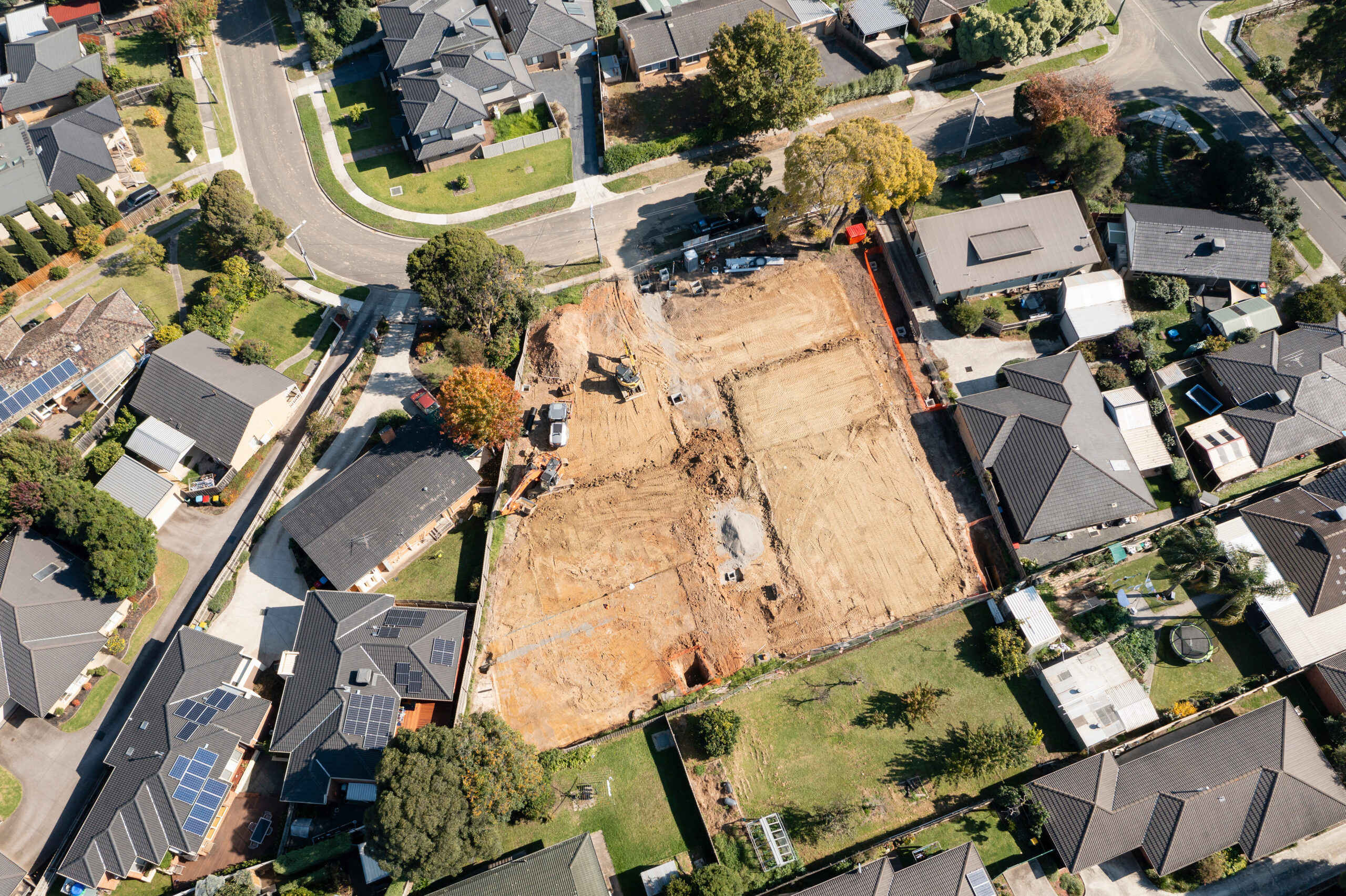Are you ready to kiss home repairs goodbye?
Do you want to personalize your home from top to bottom?
Are you a huge techie and want to include all the latest smart technology in your house?
If you’re answering yes to any, or maybe even all, of these questions, then you can understand why new construction homes can be so appealing to buyers. These are among just a few of the reasons that can make the purchase of a newly constructed home than a resale transaction.
Nevertheless, the unpredictability of new construction can make the closing a bit tricky. Here’s what you need to know about the similarities, and differences for title transactions new construction closings and how to prepare yourself for when purchasing a newly built home.
1. You still need title insurance.
Many people fall under the misconception that they might not need a Title Insurance Policy. They may ask: “ If I am the first person to own the house, what am I protecting myself (and/or my lender) from?”
Short Answer: Even though the constructed home is brand new, there are still going to be potential title risks associated with the underlying property.
Before the house was even being planned, the underlying property may have changed hands, or been pledged as collateral for financing. Just like in the resale of an existing home, this underlying land has its own history, and that history can bring potential for ownership issues.
When you go through the purchase process, choose a title company that will stand with you throughout the transaction. A title company will search for issues with the property’s title and work to clear our any defects or existing liens that need to be resolved. Because the Buyer of new construction is frequently responsible for the cost of title insurance policy, this allows you to control the company issuing the Policy that will protect your purchase for years to come.
2. Watch for mechanic’s lien or contractor’s lien issues.
You may have heard of Mechanic’s liens, Contractor’s liens, Construction liens. These are all claims of interest filed against a home or other property. In Florida, at the beginning of any construction project involving real property, contractors will file a document called a Notice of Commencement.
This document is designed to put any interested parties on notice that there is an active construction project involving the property, and that the contractor performing the job has not been fully paid for their services. During the project, if the contractor has not been paid, they may move forward and file a lien against the property. The goal of the lien is to secure payment from the contracting owner to the builders, contractors, and construction firms that performed these jobs.
Until these liens are paid, the property will become a security interest and secure the payment of the debt owed.
If a builder fails to pay their contractors, these contractors can place a lien on the property which can stall the closing process until they are paid, or until the lien is released.
If the property you are trying to buy has a Mechanic’s lien, Contractor’s lien, or a Construction lien on it, these will be found during the title search. Until these are addressed, the property cannot be sold. In other words, the person who worked on the property must be paid.
3. Choose an experienced title company or real estate attorney to act as your second set of eyes.
Many builders offer incentive programs or closing bonuses for closing with their “preferred title company”. This often means buyers are put in a position to sign away their interests without realizing it. Don’t take the bait. Instead select a title company that is completely unrelated to your builder.
From the moment you hire the title company, they will act as a neutral party, providing you with all of the information you will need as you work through the closing process. For new construction purchases, consider hiring a title company with an experienced and accessible real estate attorney on staff. They can help you review and understand the agreement of sale and any disclosures before you sign them.
4. You should always consult an outside lender for comparison.
Just like with Title Companies, Builders often encourage buyers to use their “preferred lender”, because a. they may receive a financial benefit, or b. It allows them to control the process. Despite incentives like paid closing costs and lowered deposits, buyers should consult at least one outside lender.
Builders know that in new construction, meeting deadlines to close on time can be difficult.
However, by controlling the Buyers ability to find their own lender, they can sometimes skirt these deadlines or drag out the process to suit their needs, and the Buyer will have no say or recourse.
By choosing your own lender, you are able to compare rates and fees to ensure the builder’s lender is offering you the best deal possible.
5. Don’t be surprised to find (and pay) additional fees.
As the buyer of a new construction home, you might find yourself paying more than you expected at closing.
When purchasing a resale of an existing home, the Seller frequently pays certain fees that a Buyer might have to pay in a New Construction transaction. These can include real estate commissions for both sets of agents, the Title search, the Survey and the Owners’ title insurance policy.
You should also note that who you choose as your lender can impact the fees you pay. When a builder controls the lender, this can leave the Buyer with little recourse if the closing costs are higher than anticipated. Frequently, failure to close with the terms and costs of the preferred lender can mean the loss of the Buyers’ deposit, or worse, litigation.
Using a builder’s preferred lender may have its advantages and disadvantages. We recommend doing your due diligence and checking with at least another lender or two to make sure you’re partnering with the right one.
Final New Construction Titles & Closing Thoughts
Purchasing new construction home may seem like a fresh start and a blank slate, but it is important to remember that EVERY property has its own unique history. Consider using St. Johns Title to guide you through the new construction title closing process and to issue the title insurance policy that will protect your investment. We’re an attorney-owned and operated title company that works with families during purchase and refinance transactions. Visit here to learn more about the services we offer and how our expertise can make relocating as smooth as possible.










